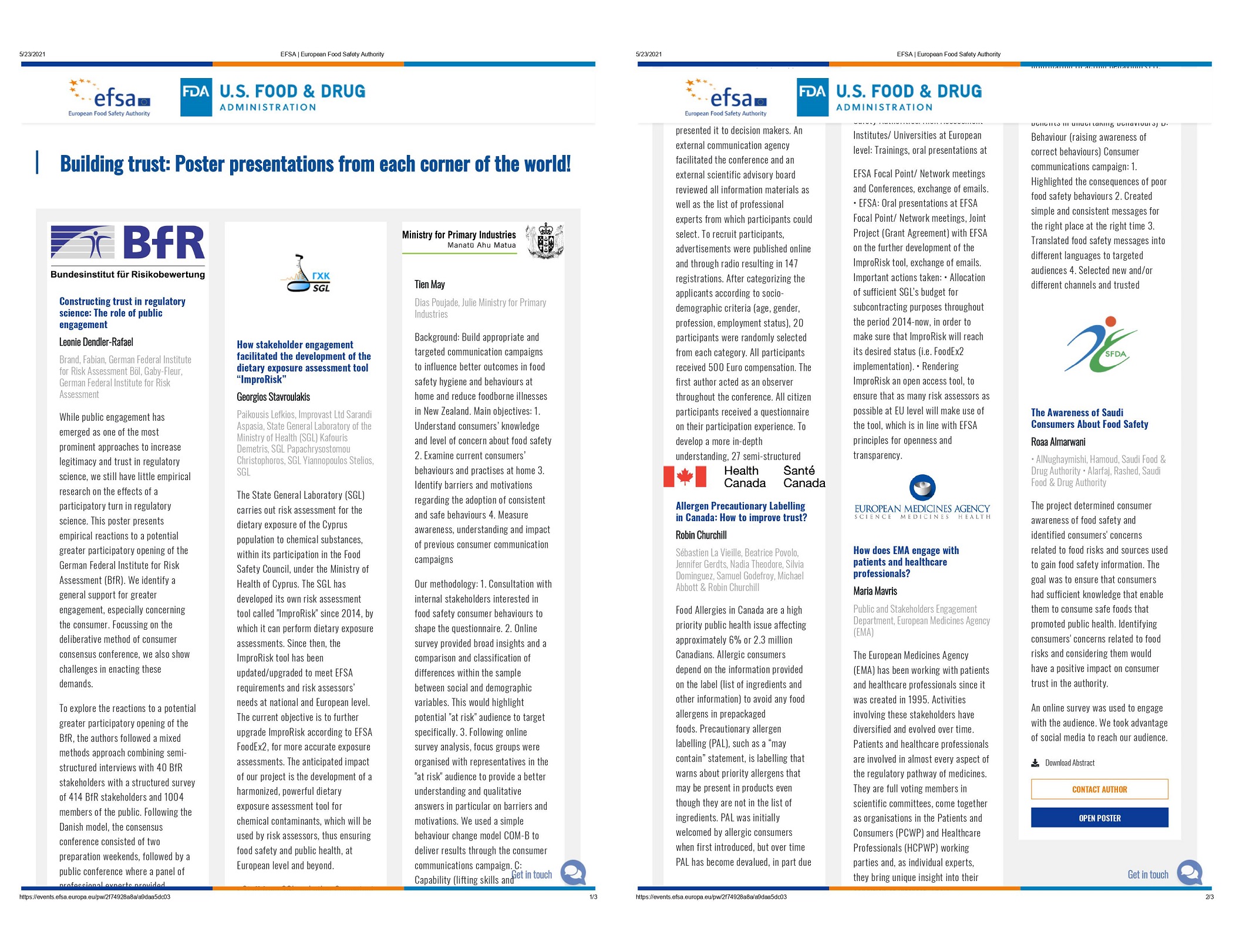Food
Food
Food Labeling Nutrition Calculator
This calculates the nutritional data of a food product which helps food manufacturers to easily place it on the product nutritional label.
Service steps
How to use the service:
- Visit the link: https://sfda.gov.sa/ar/foodlabeling-calculator
- Fill in the required fields marked with an *
- Click on "Calculate" to view the nutritional label.
Conditions
None
Service requirements
Frequently asked questions
- How can I benefit from the service ?
- you can benefit from this service by accessing the link provided.
SFDA shed light upon the awareness Saudi consumers about food safety in an international virtual event
2021-06-01
Saudi Food & Drug Authority (SFDA) participated in a virtual poster event , which was organized recently by the European Food Safety Authority (EFSA) in collaboration with the Food & Drug Administration (FDA). The event aimed to discuss combining efforts to confront a mutual challenge facing all local and international food agencies which is building and maintaining trust with stakeholders and the public.
Other News
Requirements for Clearance of Medicines, Pharmaceutical Preparations, Medical Devices , Medical Supplies and Food Supplies for the Use of Pilgrims
2025-02-20- Previous page
- Page 18
- Next page





.png)




